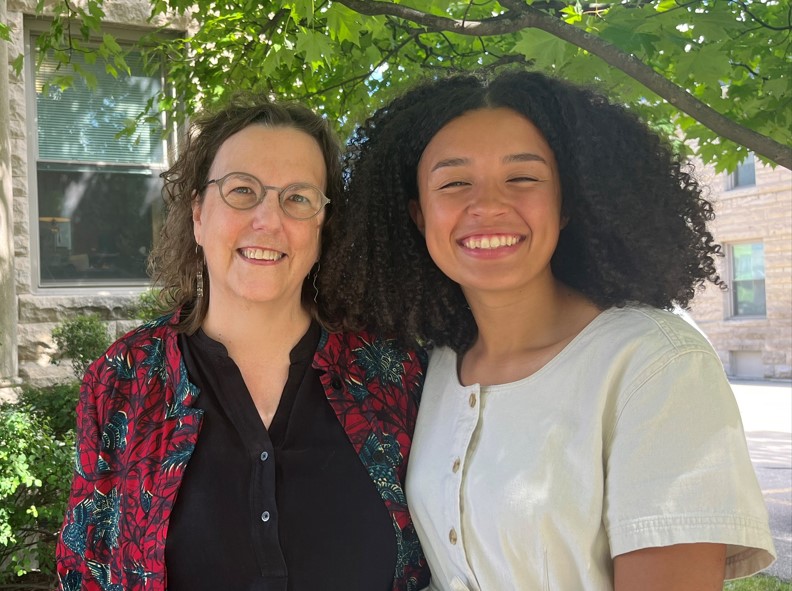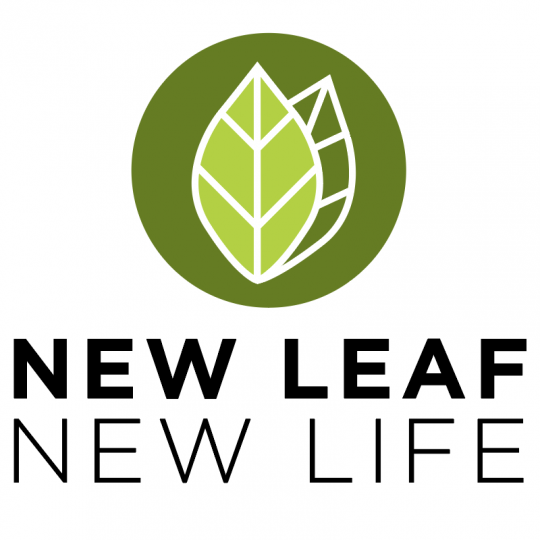By Mary Anne Sterling, Special Contributor
“Heading Home”—such a warmhearted phrase. It conjures up thoughts of a loving, safe place to return to at the end of the day. But for the hundreds of individuals and families experiencing housing insecurities, the notion of heading home is, at best, a hope.
But that notion may be changing for the better. For the past three years, our community has been working behind the scenes on a promising new approach to housing insecurity. We are proud to share a few ways that your generosity and support are creating long-term solutions to make homelessness rare, brief, and non-repeating.

In 2021, the Community Foundation, United Way of Monroe County, and the South Central Housing Network convened a working group of more than 100 people—local and regional service providers, government officials, community members, funders, and people with lived experience—to reimagine a more effective homelessness response. The findings from the group were used to create Heading Home 2021: A Regional Plan for Making Homelessness Rare, Brief, and Non-Repeating, and later that year, a new entity launched, Heading Home of South Central Indiana.
Aside from addressing the factors contributing to housing insecurity—from financial and legal challenges to emotional, physical, and mental health-related matters—the Heading Home working group analyzed best practices, mapped out service gaps, and qualified data needs. “Their collective efforts,” Mary Morgan, Director of Housing Security at Heading Home of South Central Indiana, explains, “resulted in a regionally focused plan to support long-term initiatives to eliminate regional housing insecurity and homelessness across a six-county area, including Monroe, Morgan, Lawrence, Owen, Greene, and Martin counties.” In addition to the original grants from United Way and the Community Foundation to establish Heading Home, the city of Bloomington and Monroe County have contributed about $5 million to the program over five years.

Her mandate, Mary says, “is to bring public, private, and nonprofit sectors together to develop and implement structural and systemic change to facilitate the way agencies deliver these critical services to our most vulnerable citizens.”
Heading Home is not a direct provider of services or housing. Rather, it works with an array of partners throughout the region to enhance what they do. For example, Mary explains that “tenants struggle to find current housing listings, and holders of Housing Choice vouchers grapple with finding landlords who will accept their vouchers. We are beta testing a centralized housing navigation resource developed with Myerson Consulting that we expect to launch in February.” This resource, which Heading Home will administer, will provide a single source of accurate, up-to-date information for all regional agencies to use.
At the same time, she adds, “landlords must be part of the solution, as well.” In partnership with the Bloomington Housing Authority, Heading Home is supporting a landlord risk mitigation fund to encourage landlords to accept vouchers. Another initiative underway is a pilot program to fund landlord-owned housing renovations in exchange for long-term master lease agreements with local agencies. “Our long-term goal,” she says, “is to replicate this program in surrounding counties.”
Heading Home has already achieved much in its first year. It established a partnership with the South Central Housing Network to identify and address shared training and professional development needs across multiple agencies working on housing security. It has also initiated a program with local agencies to decrease homelessness and strengthen housing security for veterans.
With the continuing support and leadership of the Community Foundation, Heading Home spearheaded the idea to join Built for Zero (BFZ) in May 2022, becoming Indiana’s first region to be part of this national network of support to decrease homelessness through a data-driven Housing First approach. “Data is a powerful tool that can change how local homeless response systems work and the impact they can achieve. We are working with BFZ to ensure that community decisions are made using the most accurate information possible.” Mary says that the initiative will ultimately lead to a public data dashboard to show the region’s progress in reducing homelessness. “The Housing First and Built for Zero models show incredible promise in reducing chronic and veteran homelessness in our communities,” she says.
To learn more about each of these Heading Home programs, visit https://headinghomeindiana.org/
Spotlight on New Leaf, New Life

New Leaf, New Life, Inc. (NLNL) was established in early 2005 to address the unmet needs of people in our criminal justice system. For nearly two decades, the organization has helped hundreds of ex-offenders in Monroe County navigate social services and secure the resources they need to succeed upon release.
Jordan McIntire was named Executive Director in 2021. “At my core,” she confides, “I genuinely believe that each of us is more than the worst thing we’ve ever done. I believe it is our collective responsibility to work together to remove the barriers in our society that chronically oppress people. NLNL provides an opportunity to do just that.”
In addition to Jordan, the staff consists of two full-time professionals, a strong board, an army of volunteers, and a handful of student interns. “They have huge hearts, and their personal experience with incarceration and substance use makes them especially effective,” she adds.
Jordan acknowledges that the Community Foundation “has played a significant role in our ability to affect real change in the lives of our clients and the greater community.” She explains that “one of the most significant needs our clients face is finding and affording stable housing after incarceration.” But funding is extremely limited and difficult to obtain. “Most grants have too many barriers to overcome, such as employment verification, at least two paystubs, or proof of 14+ days of homelessness, not including incarceration,” she added.
“Over the past seven months, we’ve assisted 36 individuals leaving incarceration to obtain stable housing. We’ve focused on assisting people with placement in transitional housing/sober living, so they have a few months to find employment and get back on their feet.” She further explains that, of these 36 individuals, only one has experienced reincarceration, making the program recidivism or relapse rate only 2.7%. “This is a very significant accomplishment that we’re proud of, as one of our overarching goals is to reduce recidivism rates in our community. This wouldn’t be possible without the support of the Community Foundation Heading Home grant.”
By the Numbers: New Leaf New Life Heading Home Grant
| 36 | Participants in the Transitional Housing program since July 2022 |
| 2.7% | Recidivism rate for individuals in the Transitional Housing program |
| 25.3% | Recidivism rate for all New Leaf New Life clients |
| 33.8% | Recidivism rate for enter state of Indiana, 2021 |
Indiana Department of Correction defines adult recidivism as a return to incarceration within three years of the offenderís date of release from a state correctional institution.
“The program is a blessing to me and other women, we come here broken and with low self-esteem, New Leaf New Life gives us hope, provides us with things we need.”
Anonymous
Jordan confides that incarcerated individuals often experience trauma. “Transition support is vital,” she explains, “because people who are incarcerated will be released one day, and they’ll be our neighbors. If they don’t get a chance to redeem themselves, it becomes a vicious cycle that adversely affects our entire community. NLNL works tirelessly to curate opportunities for these individuals. We do this by empowering others – giving a hand-up, not a hand-out.”
You can learn more about New Leaf-New Life on their website, https://newleafnewlife.org/
Other Heading Home Grant Recipients
In Summer 2022, the Community Foundation awarded six nonprofit organizations with Heading Home Grants. A total of $200,000 was awarded as part of this funding initiative.
Beacon, Inc. for a capital campaign feasibility study, architectural designs, and land assessments associated with a new facility that would combine and expand essential services for people experiencing property, hunger, and homelessness. – This grant will enable Beacon, Inc. to explore the development of a multi-tiered building that would centralize and expand essential and emergency services and housing stabilization in one location with co-located space for local health and substance misuse programs.
Bloomington Housing Authority to establish a rent deposit funding program to reduce financial barriers for low-income residents to secure stable housing opportunities. –Available to income-qualified renters, deposit assistance will be provided to an estimated 50-75 individuals per year as zero interest, flexible loans that can be repaid over time in alignment with participant income.
Catholic Charities Bloomington to support the Parent Empowerment and Child Therapy Program, a collaboration with New Hope for Families. – Through this program, low-income families threatened by homelessness will have on-site access to mental health services, including attachment-based child therapy and parenting empowerment support groups. New Hope’s early childcare educators will also receive evidence-based trauma therapy training to support children at the Nest.
Community Justice and Mediation Center (CJAM) to expand no-cost mediation services through the Housing and Eviction Prevention Project, a program that provides free landlord-tenant mediation services, legal advice, social service/rental housing assistance referrals, and court navigation support. This grant will enable CJAM to provide advanced eviction-court mediation training, develop mediator recruitment strategies, and expand its capacity to serve more clients.
Monroe County United Ministries (MCUM) to expand its Self-Sufficiency Center financial assistance program, which provides rent, mortgage, and utility payments for low-income families and individuals at risk of eviction or homelessness. Grant funding will allow MCUM to expand financial assistance to 200 more families and increase Self-Sufficiency Center outreach to landlords and community members.
Because of you and your support of the Community Foundation, Monroe County is taking impactful strides to be a place where everyone has a place to call home. Thank you for making it possible!

